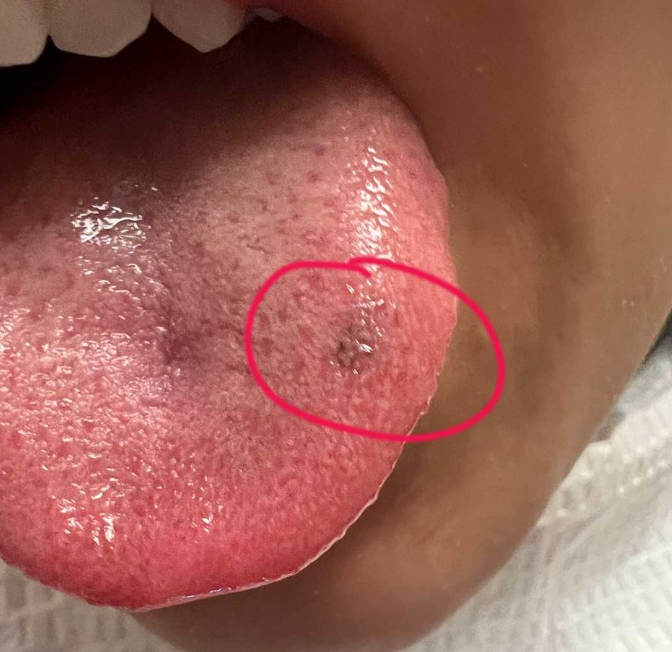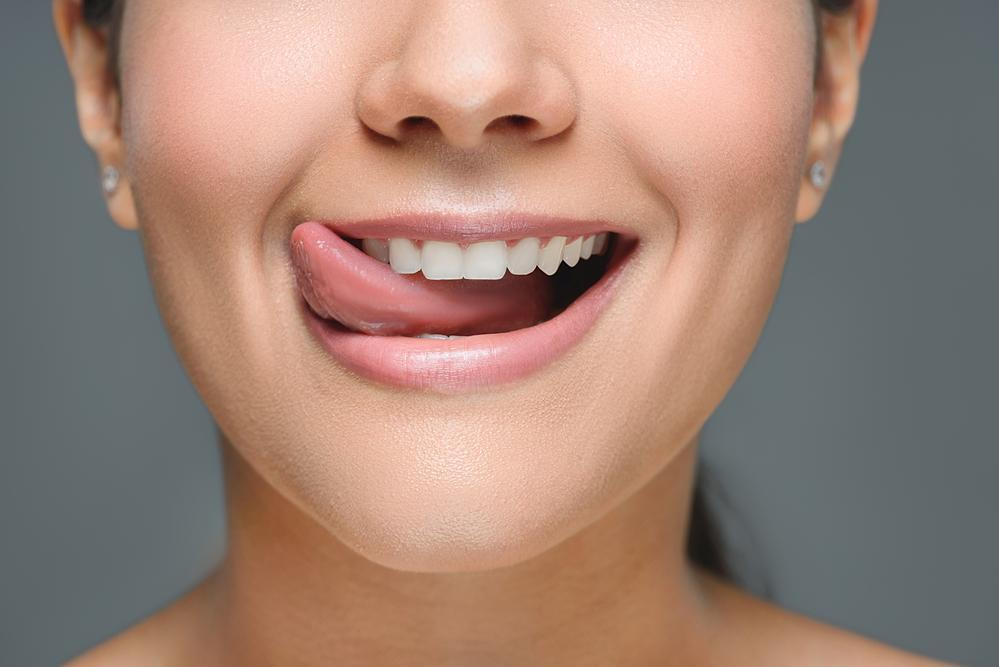Finding a black spot on your tongue can be quite alarming, especially when you’re used to seeing a uniform pink hue. But before you panic, let’s take a deep breath and explore what these dark spots might mean, how to identify when they’re a concern, and what natural strategies you can employ at home to maintain optimal oral health. In this guide, we’ll walk you through everything from understanding the basics of tongue color to actionable lifestyle tips that can help keep your mouth healthy and vibrant.
Understanding the Basics: What Is Normal for Your Tongue?

Your tongue is not only a vital part of your digestive system—it also reflects your overall health. Typically, a healthy tongue appears pink and smooth, with small bumps called papillae that give it a slightly textured look. This natural color comes from the blood vessels and tissues beneath the surface. So when you notice a dark or black spot, it stands out against this familiar backdrop and can understandably cause worry. However, it’s important to know that not all discolorations are harmful. Sometimes, these changes are simply your body’s way of reacting to various factors.
Common Causes of Black Spots on the Tongue
Black spots on the tongue can result from a variety of causes, some benign and others that may require closer attention. Here are the most common reasons:
Video: The Truth About Black Spots On Tongue
- Hyperpigmentation:
Hyperpigmentation occurs when there’s an overproduction of melanin—the pigment that gives your skin, hair, and eyes their color. This can create dark or black spots on your tongue. Often, this is related to genetics or minor skin conditions, such as oral melanotic macules, and is usually harmless. - Tongue Trauma or Injury:
Accidentally biting your tongue, consuming overly hot foods, or even brushing too hard can cause bruising. Just like a bruise on your skin, these injuries can appear as dark spots and will generally fade as your tongue heals. - Lingua Villosa Nigra (Black Hairy Tongue):
Despite its intimidating name, black hairy tongue is typically a benign condition. It occurs when the tiny papillae on your tongue become elongated and collect pigments from food, bacteria, or tobacco. Poor oral hygiene can also contribute to this condition, making it more of a cosmetic issue than a serious health problem. - Oral Melanoacanthoma:
This is a rare, benign lesion that may appear suddenly on the tongue. It’s more common in people of African descent and often resolves on its own. A biopsy might be recommended to rule out any serious conditions, but in most cases, it’s nothing to worry about. - Medications and Medical Treatments:
Certain medications, such as antibiotics or drugs used for high blood pressure, as well as treatments like chemotherapy, can lead to changes in pigmentation on the tongue. This drug-induced pigmentation is usually temporary and fades once the treatment is completed. - Smoking and Tobacco Use:
Tobacco can stain your tongue, leaving behind dark spots. If you use tobacco products regularly, the discoloration might be more pronounced, which is why quitting smoking is one of the best things you can do for your overall oral health. - Fungal Infections:
In some cases, infections like Candida (thrush) can cause dark patches on the tongue, especially in individuals with weakened immune systems. These infections are usually accompanied by other symptoms such as discomfort or a white coating. - Oral Cancer:
Although rare, a persistent, irregularly shaped black spot that grows over time or is accompanied by pain and swelling can be a sign of oral cancer. If you notice any of these red flags, it’s crucial to consult a healthcare provider immediately.

When to Seek Medical Advice: Red Flags and Warning Signs
So, when should you get your tongue checked by a professional? While many black spots on the tongue are harmless, certain warning signs indicate that you should seek medical advice right away. Consider visiting a doctor if you notice:
- Persistent Changes: The spot doesn’t fade after a few days or weeks and may even grow larger.
- Irregular Borders or Uneven Color: The spot appears asymmetrical or irregular in shape, which could suggest something more serious.
- Accompanying Symptoms: Pain, bleeding, swelling, numbness, or difficulty swallowing in conjunction with the discoloration.
- Rapid Growth: A quickly enlarging spot or lesion demands prompt medical evaluation.
- Multiple Lesions: The appearance of several spots or lesions in different areas of your mouth.
- Risk Factors: If you have a history of tobacco use, alcohol consumption, or family history of oral cancer, extra vigilance is advised.
Diagnostic Approaches: How Doctors Evaluate Black Spots on the Tongue
If you decide to see a healthcare provider, they will likely start with a thorough examination of your mouth and a review of your medical history. This may include:
- Visual Examination: A careful look at the affected area to assess the spot’s size, color, and shape.
- Biopsy: In cases where the spot appears suspicious, a small tissue sample may be taken and examined under a microscope to rule out malignancy.
- Blood Tests: These tests can help identify systemic issues that might affect pigmentation, such as vitamin deficiencies or hormonal imbalances.
- Cultures or Swabs: If an infection is suspected, a sample may be taken to detect bacteria or fungi.
Understanding these diagnostic steps can help you feel more in control and less anxious about your health. After all, knowledge is power, and the sooner you know what you’re dealing with, the sooner you can take the right steps.
Effective Home Remedies and Lifestyle Changes
Video: Different Colours of the Tongue and Their Problems
While waiting for a medical evaluation or if your black spot appears benign, there are several practical steps you can take at home to improve your oral health and potentially reduce discoloration:
- Maintain Good Oral Hygiene: Brush your teeth at least twice daily, floss regularly, and use a tongue scraper to gently clean your tongue. This helps remove debris and bacteria that can contribute to discoloration.
- Quit Smoking: If you’re a smoker, consider cutting back or quitting altogether. Tobacco products not only stain your tongue but also increase your risk of many oral health issues, including cancer.
- Stay Hydrated: Drinking plenty of water keeps your mouth moist, aids in flushing out toxins, and supports overall oral health. Think of water as a natural cleanser for your body.
- Monitor Your Diet: Reduce consumption of dark, acidic foods and beverages like coffee, tea, and soda that can stain your tongue. Instead, opt for fresh fruits, vegetables, and whole grains that promote a clean, healthy mouth.
- Avoid Irritants: If you’ve experienced tongue trauma, steer clear of very hot or sharp foods until your tongue heals.
- Regular Dental Check-Ups: Schedule routine dental visits to catch any issues early and maintain a clean, healthy oral environment.
Prevention: Long-Term Strategies for Maintaining a Healthy Tongue
Prevention is always better than cure, especially when it comes to maintaining your oral health. Integrating these habits into your daily routine can help prevent the appearance of unwanted black spots and other oral issues:
- Consistent Oral Care: Make oral hygiene a non-negotiable part of your day. Just as you wouldn’t skip brushing your teeth before bed, don’t neglect your tongue.
- Healthy Lifestyle Choices: Exercise regularly, manage your stress through meditation or yoga, and maintain a balanced diet. A healthy lifestyle has a direct impact on your immune system and overall oral health.
- Stay Informed: Educate yourself about oral health trends and listen to your body. If something doesn’t feel right, don’t hesitate to consult a professional.
Conclusion: Empower Yourself with Knowledge and Healthy Habits

Finding a black spot on your tongue can initially feel alarming, but understanding the potential causes and knowing the steps you can take makes all the difference. From recognizing benign conditions like hyperpigmentation or minor injuries to being aware of warning signs that warrant professional evaluation, informed choices are key. By maintaining excellent oral hygiene, adopting a balanced diet, staying active, and reducing harmful habits like smoking, you empower yourself to take control of your heart and oral health.
Remember, small changes can lead to big improvements over time. Stay proactive, listen to your body, and don’t be afraid to seek medical advice if something seems off. With these natural strategies and lifestyle adjustments, you’re well on your way to a healthier, happier mouth—and a brighter smile for years to come


